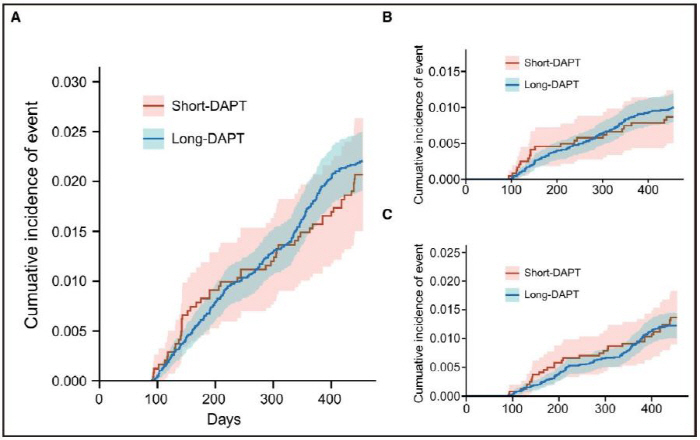Presenting the appropriate duration of medication after carotid stenting...Less than half a year is enough to reduce the risk of bleeding
Mar 28, 2025
|
Carotid stent implantation is mainly performed in patients with carotid stenosis who cannot undergo carotid endometriomy. After stent implantation, it is recommended to use double antiplatelet drugs, including aspirin, to prevent complications such as thrombosis and ischemic stroke in the stent. In this case, it helps to prevent complications, but on the contrary, the risk of bleeding increases.
After carotid stent implantation, double antiplatelet drugs have been conventionally used for more than a year, and there is still no clear guideline on the duration of use. Accordingly, the research team tried to classify patients who underwent carotid stent implantation according to the duration of double antiplatelet drug use to find out whether there is a difference in the occurrence of ischemic stroke and major bleeding (cerebral hemorrhage, intestinal hemorrhage accompanied by blood transfusion).
The study used National Health Insurance Corporation billing data from patients who underwent carotid stent implantation between 2007 and 2019. Among them, the duration of antiplatelet drug use was divided into short-term (3 to 6 months) and long-term (6 months or more), and ischemic stroke and major bleeding occurred between 3 and 15 months after the procedure were examined.
As a result of the study, there was no significant difference in the recurrence of ischemic stroke and the incidence of major bleeding, 2.5% in the double antiplatelet drug short-term use group and 2.1% in the long-term use group. In addition, there was no significant difference in the follow-up results of ischemic stroke recurrence and major bleeding, respectively.
These results suggest that short-term use of 3 to 6 months is also an appropriate treatment compared to long-term use of double antiplatelet drugs, which is a conventional practice.
Professor Yoo Jun-sang said, "The results of this study will help reduce the use of unnecessary long-term double antiplatelet drugs in patients who have undergone carotid stent implantation and to establish appropriate treatment strategies. We plan to conduct various studies to prevent stroke and cardio-cerebrovascular disease through big data research using public health data in the future." The findings were recently published in the Journal of the American Stroke Society 'Stroke'.
|
This article was translated by Naver AI translator.















